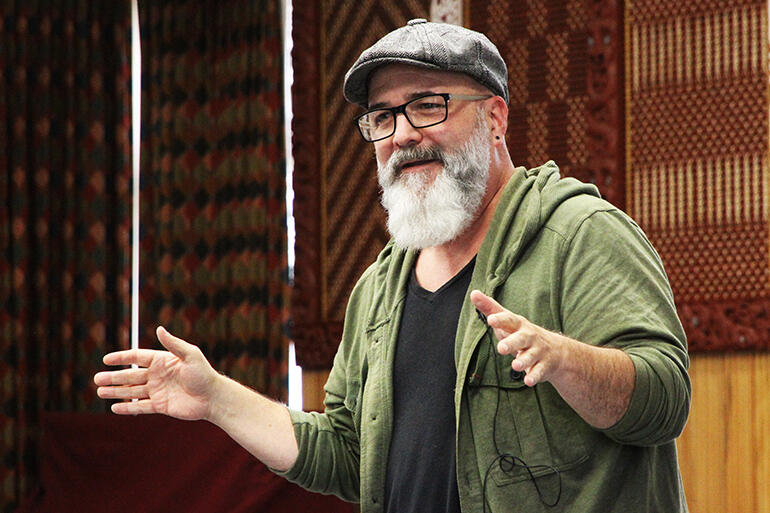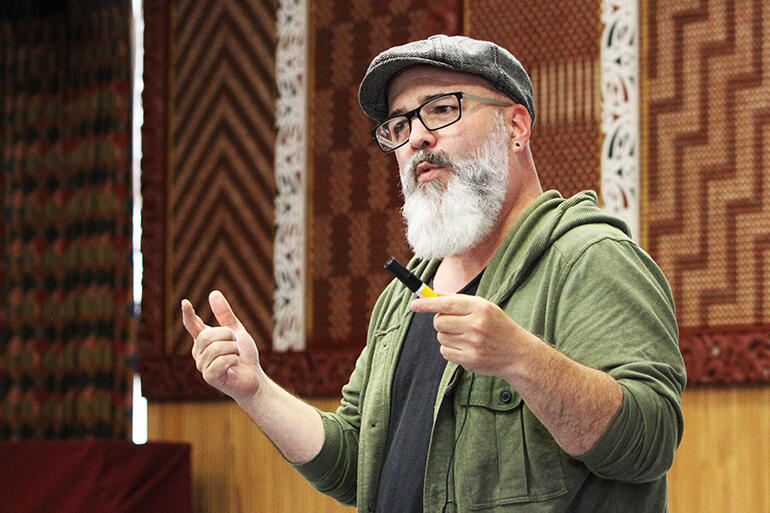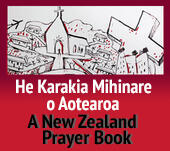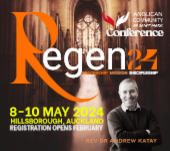

About 10 years ago, US theologian, pastor and author Paul Sparks was in Portland, Oregon.
He met up with a mate who took him walking through Lents, which is one of the oldest neighbourhoods in the city.
They walked down the main street of Lents, past five church buildings.
The door of the first was boarded over. Nailed shut. The congregation at the second had dwindled to a remnant. The other three churches were in no better shape.
"By the time we got to the end of the street," Paul told a gathering of about 40 people at St John's College yesterday, "I'm feeling this weight on my chest. I said to my friend: 'Man – this is so devastating. It's so painful to see.'
He replied: 'I haven't finished with the walk yet.'
#
So they then walked deeper into the neighbourhood.
His friend began pointing out houses where people had come in and planted themselves, so they could engage with the neighbourhood.
He took him to a park where others had set up a bicycle repair service – so they too could serve their neighbours. They walked past community gardens – and on past 12 free street libraries.
"As we walked, he'd point out different people – and say: 'This one came from that church, and that person is from that church. They've joined together to be present – to be the Body of Christ in this neighbourhood.
"And as we walked on, it was almost as though I could see this fabric of love and care developing across the whole place.
"From that day forward, every time I would visit a different congregation, or a different parish, I would always ask: 'Can we get out into the streets?
"Can we go into the places where people are intersecting – and can we watch for, and look for and pray for what God is up to, on the ground, in the everyday realities of this place?'
"And to my delight, and to my surprise – I have yet to visit a neighbourhood where something isn't percolating. I've yet to go to a place where there isn't some thread of goodness at play, where God is doing something."
The paradox, says Paul, is that almost always the people who try to "tune into their own context" feel, at first, that they're on their own.
They feel disconnected. Their work isn't championed. On tough days, they wonder whether what they're trying matters.
#
In the last 10 years, Paul Sparks has walked across more than 1000 US neighbourhoods trying to do something about that.
He's also worn out shoe leather in neighbourhoods in Europe and Australia, and now he's here in New Zealand, as a founding director of the Parish Collective, which seeks to help the local church "become a life-giving presence in, with and for their neighbourhoods.
Paul Sparks believes that being "faithfully present" in our neighbourhoods is all-important.
"This work of being present, in the place where God has called us – is not the small stuff. It's the gospel at play."
And connecting these groups of faithfully present people so they can learn from one another, and encourage one another is, he believes, of paramount importance.
#
"Here's my bias around this thing:
"I think the parish is a fundamental human ecology for our maturation and growth as human beings.
"In other words, I think if you do away with the parish, if you unravel the neighbourhood, you will unravel everything else.
"Your civic life will begin to unravel. Your economic life will begin to unravel. Your care for the ecology of the place that you live, likewise.
"When I talk parish, I'm talking about a geography large enough to live a lot of life – large enough so you could do some work and play and resting, shopping – but small enough to become a known character."
And if people are not connected into a parish, says Paul, they get lost in what he called 'the space of flows'.
"Places have turned into spaces where people flow through, and there's no belonging.
"No community. I think it's at the very fundamental core of the Gospel for us to learn a way of being faithful together in the place that God has called us."
#
"This is tough: we've got to stop following the church growth experts. We've got to stop following people who have been celebrating things that aren't really the Jesus story.
"We've got to start championing these small stories.
"The gospel is about learning how to face each other. In our difference. It really is. The miracle of the gospel is the divine power of God to begin to face each other in our difference, in the everyday realities of life.
"And we want to escape it all the time. At the end of the day, it's going to take a miracle. The only way to turn and face each other and find the way of peace and life and grace is to repent.
"To be honest, if we start with thinking about new words like 'missional', before we start with repentance... That's backwards."
#
This notion of the importance of place, and neighbourhood, is not new, says Paul.
It always was God's plan.
Paul quotes Genesis 2: 10-14, as proof that God's original intention was that people would flourish in the place that He planted them.
There, in the midst of the overarching drama of the creation story, God takes time to name Pishon, Havilah, Chidekel, and Phirat – the four tributaries of the river that watered the Garden of Eden.
#
Paul Sparks is in New Zealand until later this week. He spoke at Carey Baptist College last evening, and will speak again at Wellington's Cathedral of St Paul tomorrow evening at 7:30pm.

















Comments
Log in or create a user account to comment.